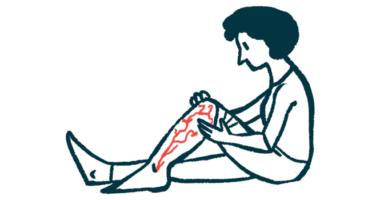Create an Environment Where You Can Live Well With Rare Disease

Leading an association that supports and advocates for rare disease patients while being a caregiver to one certainly has shaped my outlook on life. To a larger extent, these roles have allowed me to find my calling within the campaign space, where I’m pushing for positive changes to the present system in New Zealand. These changes would help to provide better treatment opportunities for those with rare diseases.
My husband, Aubrey, 57, was diagnosed with hereditary ATTR amyloidosis in 2013. He underwent a liver transplant in 2016, and is presently on a treatment to slow his disease progression and reduce deterioration, though it has side effects.
Because he was diagnosed late, his health continues to decline. Nonetheless, had he not received the necessary support from his clinicians and self-advocated for treatment access, it is safe to say that Aubrey would not be alive today.
The other day, I came across a quote by philanthropist W. Clement Stone that stated, “You are a product of your environment. So choose the environment that will best develop you toward your objective. Analyze your life in terms of its environment. Are the things around you helping you toward success — or are they holding you back?”
I agree, because every experience we have and every person we encounter shapes and molds us into the unique beings we are. Once we acknowledge this, the next step is to see how pliable that environment can become. Instead of adapting to our surrounding circumstances, we’re pushing our circumstances to comply with our needs. The former involves a spirit of surrender, while the latter means we are deliberate in conquering misfortune.
As a carer, I have come a long way to reach this realization: No matter my dread, one day too soon I may lose Aubrey. Until then, more can be done. If you are a caregiver or patient facing tremendous challenges and fears about what will happen, I am here to remind you of the following:
Please do not give up
Allow emotions to surface and be kind to yourself. Speak to someone who understands, and seek counseling support if you feel you need it. This is a rare disease, and we could use more avenues of assistance, but recognize that you are not alone and do not have to face this by yourself. Organizations such as the New Zealand Amyloidosis Patients Association, Amyloidosis Support Groups in the U.S., and the Amyloidosis Research Consortium are just a few places where you can find help.
Identify your healthcare advocate and trust them
As confused and powerless as you may feel, keep your wits about you and approach your situation calmly. Having a doctor that understands what you are experiencing — including fears, concerns, and expectations — is very important because they can become your biggest advocate. Respect them and their decisions, but also be firm about your intentions. If you don’t give up, they shouldn’t, either.
Stay healthy
Diet and exercise will test patients to the core, because this disease can cause debilitating gastrointestinal issues, leading to malabsorption and muscle loss. You will fight daily fatigue and loss of appetite, and your energy levels will wane.
If you are a caregiver, you may not deal with symptoms, but you are still stressed, even if you can’t feel it. Try to eat healthily and get out in the open air for some light stretching or going on walks, even when you really don’t want to. Restful sleep may be hard to come by, but grab every chance you get to rest and raise your feet. Reward yourself.
If you keep your head above water long enough, you will begin to discover that the space you were in earlier looks more hopeful. Stay hopeful.
***
Note: FAP News Today is strictly a news and information website about the disease. It does not provide medical advice, diagnosis, or treatment. This content is not intended to be a substitute for professional medical advice, diagnosis, or treatment. Always seek the advice of your physician or other qualified health provider with any questions you may have regarding a medical condition. Never disregard professional medical advice or delay in seeking it because of something you have read on this website. The opinions expressed in this column are not those of FAP News Today or its parent company, BioNews, and are intended to spark discussion about issues pertaining to familial amyloid polyneuropathy.







Comments
Pamela Thompson
Best wishes for continued improvement. I too have hattr. It’s a long process to get treatment but it’s worth the effort.
Jaime Christmas
Thank you Pamela for the word of encouragement. Take care and keep smiling :)